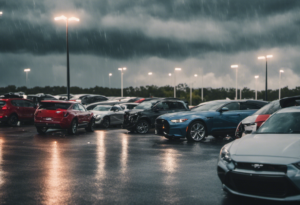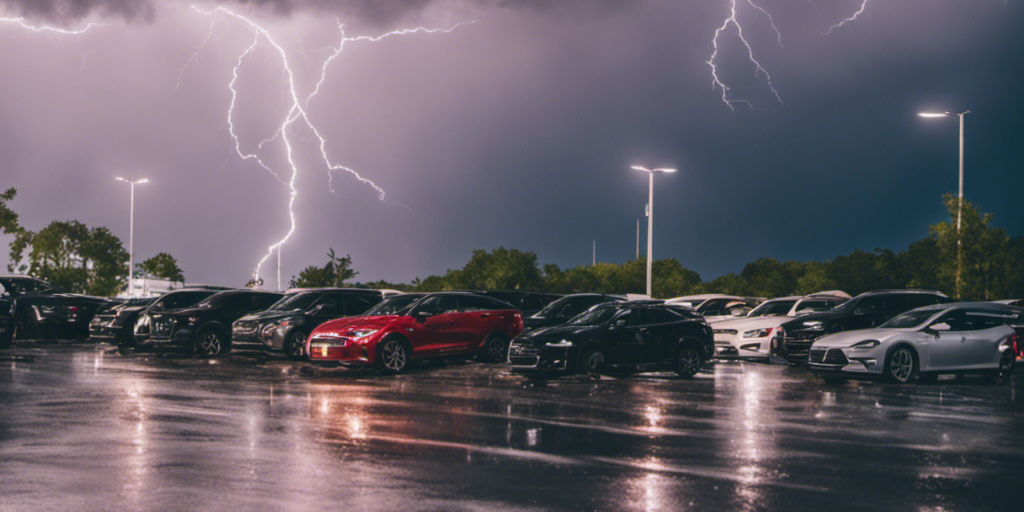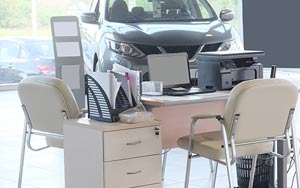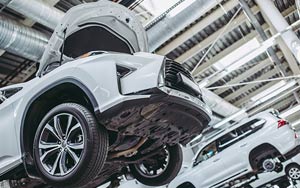As the 2023 hurricane season gets underway, Florida auto dealerships must take steps to protect their inventory, facilities, and employees. Moreover, with storm forecasts predicting an above-average season, proper preparation is crucial.
To begin with, dealerships should inspect their properties to ensure structures are secure and can withstand high winds. This involves checking for any roof, window, or door damage that could compromise integrity during a hurricane. Damaged areas should be promptly repaired. Additionally, dealers should remove or secure any loose items like outdoor displays that could become flying debris in strong winds. Taking inventory of property hazards ahead of time minimizes risks.
Next, dealerships must devise plans for moving vehicles to higher ground if a hurricane threatens their area. According to the Florida Department of Highway Safety and Motor Vehicles, around 100,000 vehicles were flooded during Hurricane Irma in 2017 because they were left in low-lying lots. Between Hurricane Irma and Harvey, over 1 million cars were damaged. To avoid similar losses, dealers must identify locations within their facilities or at off-site facilities to relocate vehicles above potential flood levels. Preparing trailers or flatbeds for transportation beforehand, rather than scrambling as a storm approaches, reduces potential damages and financial losses considerably.
Dealerships also need proper notification systems to communicate with staff before, during, and after storms. Planning communication channels is crucial, as cell towers may be overloaded or down during emergencies. Dealers should confirm multiple contact methods like email, texts, and websites and have up-to-date emergency contact lists on hand. Likewise, personnel should be informed of expectations for checking in and responding to calls to assist as needed after a storm has passed.
Protecting People and Property
 As hurricane season hits its peak from late August through October, Florida auto dealerships must be prepared to protect not only their vehicles and facilities but also their employees. This involves plans to safely evacuate personnel from harm’s way if a strong storm threatens. Dealers should designate weather-safe locations inland where staff can take shelter with their families if told to evacuate zones under mandatory evacuation orders from local officials.
As hurricane season hits its peak from late August through October, Florida auto dealerships must be prepared to protect not only their vehicles and facilities but also their employees. This involves plans to safely evacuate personnel from harm’s way if a strong storm threatens. Dealers should designate weather-safe locations inland where staff can take shelter with their families if told to evacuate zones under mandatory evacuation orders from local officials.
Additionally, managers must establish policies regarding when operations will close, and staff will be sent home as a dangerous storm approaches. The National Weather Service and local emergency officials often provide timely watches and warnings to guide these decisions. Making closure determinations well in advance prevents employees from getting stranded in dangerous conditions while trying to evacuate. Dealerships also need protocols for essential staff who may need to ride out the storm and assist with post-hurricane recovery efforts.
Florida auto dealers who take proactive steps in hurricane preparedness, such as inspecting properties, planning vehicle protection, and establishing staff communication protocols, can significantly reduce damages and losses when storms hit. According to the National Oceanic and Atmospheric Administration, hurricane-related insurance claims have averaged over $10 billion annually in recent decades. However, taking the aforementioned steps to secure inventory, facilities, and people can avoid many of these expensive impacts. Being prepared before a storm’s arrival is crucial for local businesses looking to weather the frequent summer and fall storms along Florida’s vulnerable coastline.
Get Prepared, Stay Safe!




